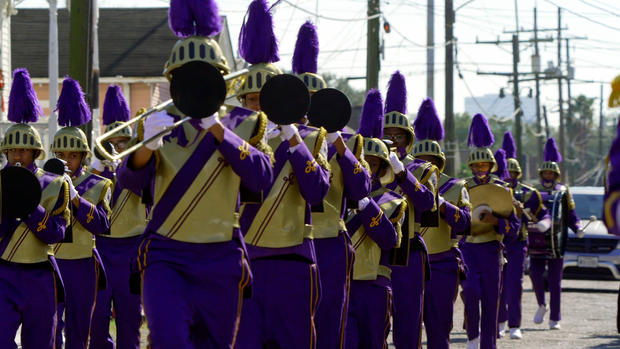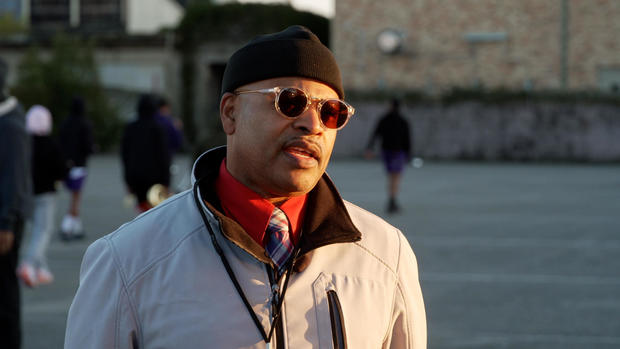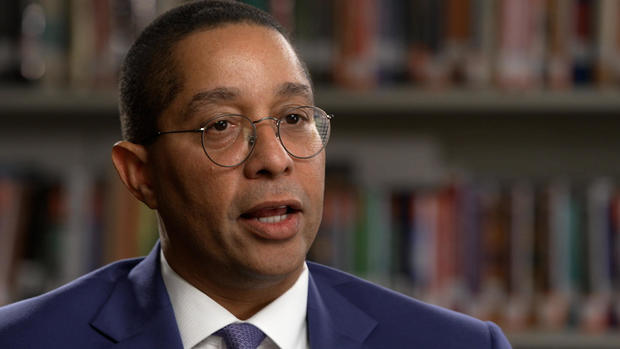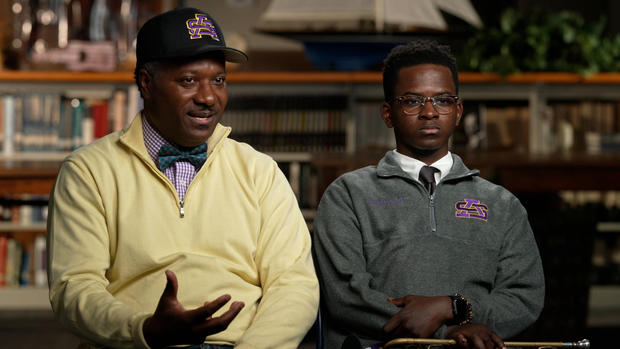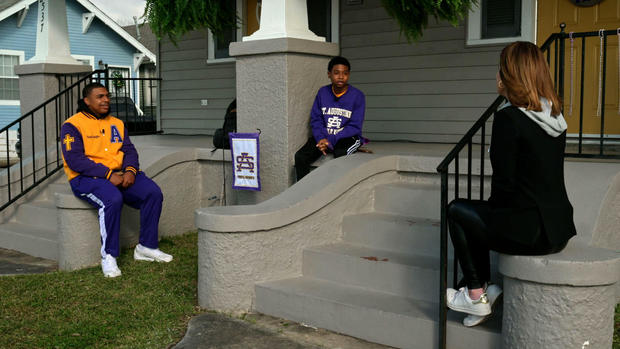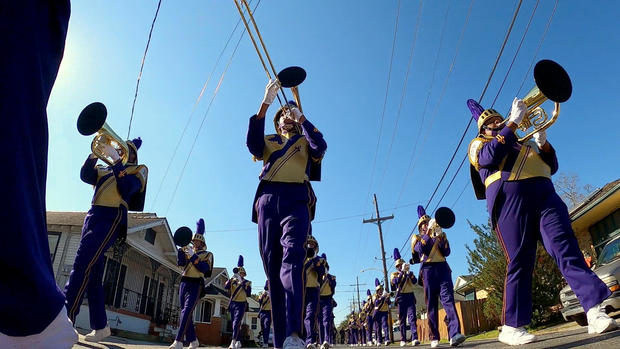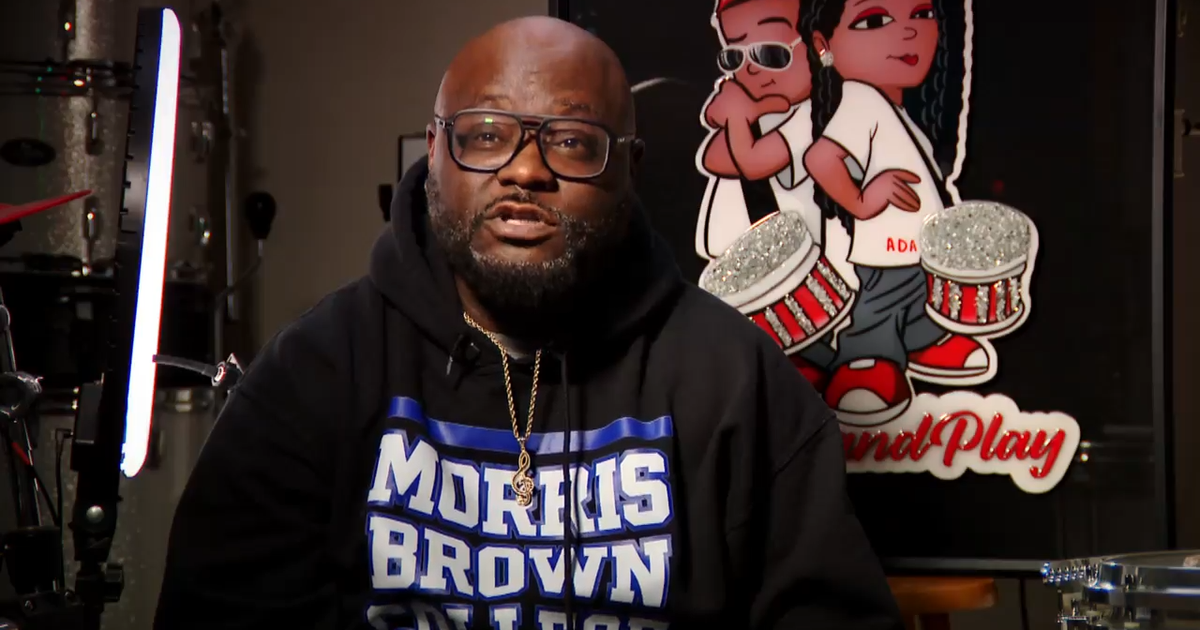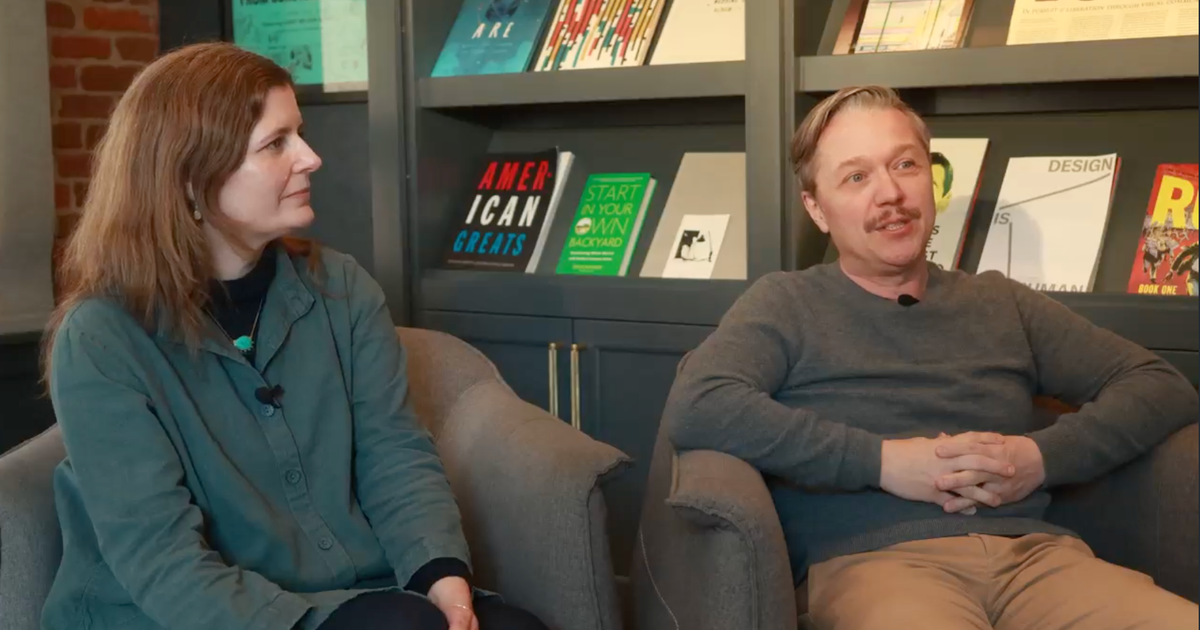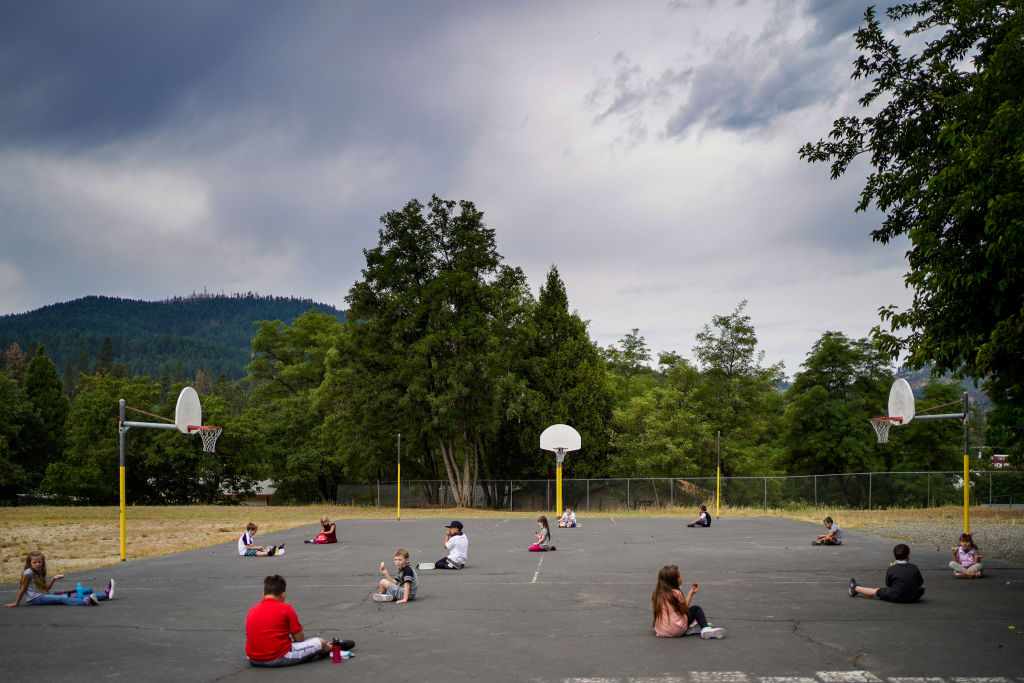New Orleans' St. Augustine High School Marching Band, the self-proclaimed "Best Band in the Land"
This year, Mardi Gras came and went in New Orleans without much fanfare. Because of the pandemic, for the first time in 42 years, the city's world-famous parades did not roll.
Instead, New Orleans was eerily quiet.
Unless you listened extra carefully. Far from the normal parade route, we found a high school marching band breaking the silence. They call themselves the "Best Band in the Land." As we first told you earlier this year, we call them a story and a band you ought to hear.
The St. Augustine High School Marching Band needs no introduction in New Orleans. The drums and horns have echoed through this city since the band was founded in 1952.
But like any aging instrument, it was in need of a tune-up.
Enter... Ray Johnson.
He was hired as the new band director last summer and he isn't wasting time with pleasantries.
Sharyn Alfonsi: Can you tell if they've been practicing?
Ray Johnson: Yes, I can. Everything has to be precise. The marching, the precision, standing correctly.
Sharyn Alfonsi: And can you hear it if one of them is off?
Ray Johnson: I can, yes.
Sharyn Alfonsi: And will you call 'em out on that?
Ray Johnson: I sure will.
Ray Johnson: In New Orleans, marching band is a culture. Just like in some places they have football as a culture. But here in this city they live, breathe, eat, sleep, everything marching band.
St. Aug, as it's known, is one of the few predominantly Black, all-boys Catholic high schools in the country. It sits in New Orleans' Seventh Ward -- seven blocks from the Mississippi River -- not the part of the city usually found on postcards. The school is surrounded by reminders of a city forever rebuilding.
In here, Ray Johnson is rebuilding too. The "Best Band in the Land" is more of a mission statement these days.
Since Hurricane Katrina flooded the school in 2005, it's been a long haul. The music library is still a temporary trailer on the blacktop.
Ray Johnson: School didn't come back the same. And instruments, we didn't have enough, and the uniforms were damaged. So, we had to rebuild everything. And just now, we were beginning to see the fruits of our labor and then here comes COVID.
Sharyn Alfonsi: How many kids are in the band now?
Ray Johnson: On the roll, I have 85.
Sharyn Alfonsi: Where would you like that number to be?
Ray Johnson: 150.
150 allows for a full band and a deep bench.
For decades, they easily hit that number. On a sizzling hot blacktop over the summer, hundreds of students would try out for a spot.
The competition was fierce. Many of the kids had grown up playing music. Ray Johnson was one of them.
Sharyn Alfonsi: Would you have ever skipped practice back in the '80s?
Ray Johnson: Oh, no, ma'am. No, not at all. If you-- if you skip practice, th-- you got-- ten dudes lined up to take your spot.
They were a powerhouse. St. Augustine played for eight presidents and a pope.
The band's founder, Edwin Hampton, was a no-nonsense disciplinarian who created the band's signature style.
Ray Johnson: Most marching bands, what they call show bands-- they might dance, or play popular music. The difference that sets St. Augustine apart we played popular music but we had a military style.
That meant eyes forward and chins up - no matter what. Pristine uniforms, perfect lines and gravity-defying knees would whip Mardi Gras crowds into a frenzy.
In 1960, Ruby Bridges famously desegregated New Orleans' public schools. Seven years later, St. Augustine desegregated Mardi Gras parades.
Band members say they were urinated on as they passed under balconies. Dr. Kenneth St. Charles was the school's president last year.
Dr. Kenneth St. Charles: So they had people throwing things at them. They had to not respond. They had people yelling obscenities to them. They could not respond.
Sharyn Alfonsi: It's a lot to ask of-- of a young guy
Dr. Kenneth St. Charles: It's-- it's a lot to ask of-- of a 14, 15, 16-year-old kid to not retaliate. You know, we teach them as we do in our Christian faith, "Turn the other cheek."
Dr. St. Charles knows the discipline required in those moments. In 1981, he and his classmate, Ray Johnson, were marching in a Mardi Gras parade for St. Augustine when an adult, who was chaperoning the band, got into a scuffle with a plain clothes police officer. The officer pulled his gun.
Ray Johnson: And then the gun went off. And all of a sudden, the police started showing up on horseback and the band got disarray and stuff like that. So, one of our baritone players said, "Ray, you have blood on your uniform." And that's when I started feeling the pain in the side of my face here. So, that's where the bullet went in my jaw and came out the back of my neck.
Sharyn Alfonsi: You didn't realize you'd been shot?
Ray Johnson: I didn't know I was shot. One police officer was tryin' to give me first aid. So, he said, "Look--" he said, "I gotta cut this uniform off you to see if you're hit anywhere else." And I said, "Hold up." I said, "You can't cut this uniform." I said, "It has buttons on it. I can take it off."
Sharyn Alfonsi: Why didn't you want him to cut the uniform?
Ray Johnson: Well, I knew that if this man cut this uniform-- Mr. Hampton would probably kill me.
After college, Johnson returned to St. Augustine where he worked as an assistant to Edwin Hampton for 11 years before leaving to teach at another school.
Hampton stayed for another 12 years until he passed away in 2009. Without him, some at St. Augustine thought the band had lost its edge. Ray Johnson was hired back to sharpen it.
Dr. Brice Miller: For me, it was like, dude, you're about to fall deep into the rituals of the tradition. Ray is, like, the essence of St. Aug.
Brice Miller played the trumpet under Hampton, the band's founder, and Johnson in the 90's. His son, Brice, a sophomore, was a familiar name on Johnson's roster.
Brice Miller: He already knew who I was because of my dad. So he expected a lot from me.
Dr. Brice Miller: Now having my son participating not only in the band, but with your band director, it was a beautiful thing.
"Beautiful" might not be the way some of the teenagers would describe the introduction.
Senior Kabrel Johnson and 8th grader Lawerence Honore are part of the drumline.
Honore wasn't much bigger than his snare drum when he decided he wanted to play for St. Augustine.
Sharyn Alfonsi: Tell me your impression of Mr. Ray.
Lawerence Honore: I think he's pretty nice. He could be feisty at some times, but that's all discipline.
Sharyn Alfonsi: What do you mean, feisty?
Lawerence Honore: Like, he yells…but
Kabrel Johnson: He yells outta passion--
Sharyn Alfonsi: When I'm sittin' here talkin' to you, you're so almost soft-spoken. And you see you out there on the blacktop--
Ray Johnson: Uh-huh
Sharyn Alfonsi: --and it gets up a level.
Ray Johnson: Right.
Sharyn Alfonsi: That's by design?
Ray Johnson: I want you to be out your comfort zone because I need you to pay attention. And when you pay attention, you learn.
A few minutes into practice and it's clear the band's program isn't just designed to produce good musicians, it's part of the school's larger mission to produce good men.
Dr. Brice Miller: That's the history of this-- of this school. Your teachers are strong intellectual Black men. Your coaches, strong intellectual Black men. Your band directors, strong intellectual Black men. So you see that wide range, that wide display of, again, Black male success.
The school preaches discipline and the band demands it. The only way to achieve St. Augustine's signature military formations is to stay in line and make sure the guy next to you is, too.
Sharyn Alfonsi: Tell me about Mr. Ray. What has he done for the band?
Kabrel Johnson: One year ago, is not the same band you see today. I'm not gonna lie, was a little bit less disciplined. But now if you move, you will be, you're gonna have them pushups after-- after that parade--
Sharyn Alfonsi: Wait. If you move you have to do pushups?
Kabrel Johnson: Oh, most definitely.
Sharyn Alfonsi: Do people try to get your attention?
Kabrel Johnson: Oh, they do. I remember my cousin has tried, my mother has tried.
Sharyn Alfonsi: So you just have to be eyes forward--
Kabrel Johnson: You gotta be locked in.
Last winter, nothing seemed to be moving in New Orleans. The pandemic shuttered the city. Even Bourbon Street seemed to have sobered up.
St. Augustine has bounced between in-person and virtual learning all year long.
When band practice was cancelled for a week, then a month, Lawerence Honore improvised.
When their high school football game was nearly flooded, the entire band called an audible and shook the stadium from below.
And when they learned Mardi Gras parades were cancelled, Ray Johnson didn't miss a beat.
Ray Johnson: Well it's hard because it's a tradition you know. Just like anything else, you know you gotta suck it up and keep moving.
That's what Brice Miller is doing. He is a professional musician. When the city shut down last year his work dried up. He started volunteering with the band.
Sharyn Alfonsi: Before this, you know, your dad was busy all the time, right? Now you're seeing a lot more of him because the pandemic. What's that been like for you?
Brice Miller: Like I'm actually proud of him because he's also kinda struggling. You know, he's a professional musician. Can't do none of that, Jazz Fest, can't do anything. But he really loves what he does. But he loves his family more.
Dr. Brice Miller: I want him to be the best, the most successful that he can possibly be. I don't want him to become a statistic in any way. That's the realism of raising a Black boy and raising a Black boy in a city like New Orleans.
That realism doesn't take holidays off. Lawrence Honore's good friend, who attended a different school, was killed walking out of a store.
Lawerence Honore: On Christmas night, he had got caught in a crossfire, and they had shot him in the head.
Sharyn Alfonsi: And how old is he?
Lawerence Honore: 14.
The same age as Honore. He played at his buddy's funeral. And then, his mom drove him straight to band practice.
With just about everything cancelled this year, it's hard for anyone to find a reason to get dressed. But that's exactly why Ray Johnson had the band do it anyway. And then, directed them to march through the neighborhood.
The route lacked the grandeur of a Mardi Gras parade, but locals poured onto their porches anyway. Even when they're a little scratchy and a lot loud, it is a joyful sound in the Seventh Ward.
Dr. Kenneth St. Charles: I think when people heard us starting to practice again and the students coming back, it-- it gave a sense of, okay, things are getting better.
Kabrel Johnson: I think it's so good that the band marches around the block. Cause I feel like that is-- that is St. Aug, that is New Orleans.
Lawerence Honore: Yeah. That's what people need nowadays because of the pandemic. They need something to cheer them up.
They marched down the block, hanging a right at Hope Street, Ray Johnson behind them at every step.
New Orleans was quieter than normal during the pandemic.
But musicians find a way. Tonight, we introduce you to New Orleans' self-proclaimed "Best Band in the Land", so you could hear them and their story.
Produced by Laura Dodd. Associate producer, Lucy Hatcher. Broadcast associate Elizabeth Germino. Edited by Matthew Lev.

